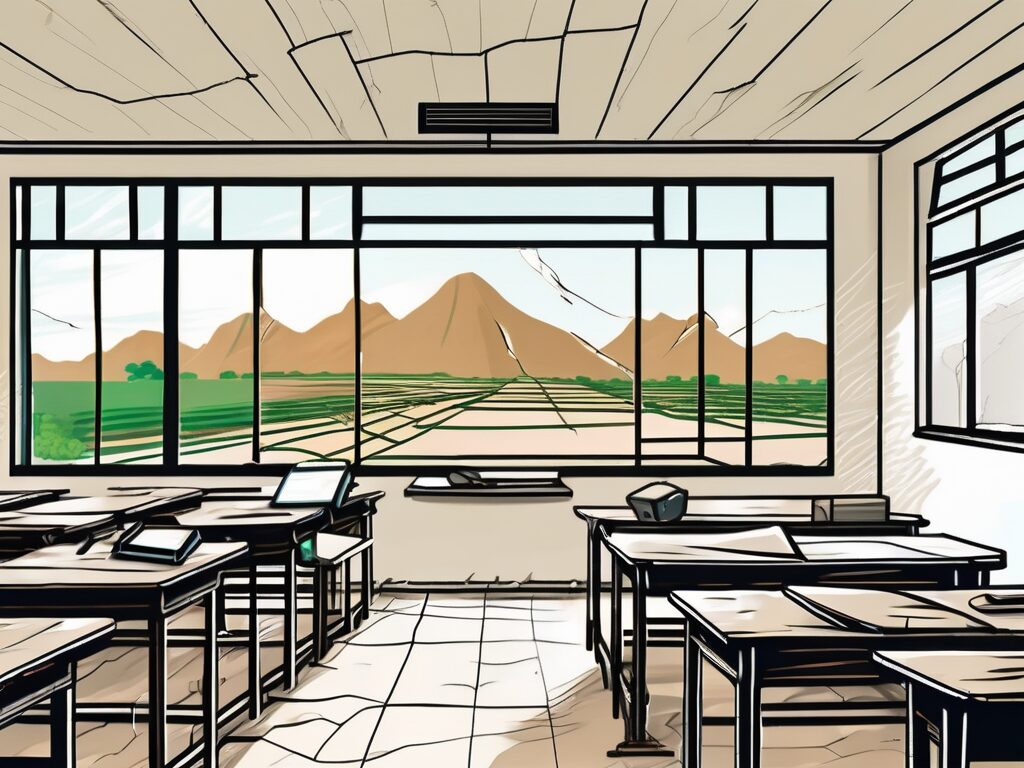Vietnam, a Southeast Asian country with a rich history and diverse culture, has made significant strides in its education system over the past few decades. However, like any other developing nation, it faces a myriad of challenges that hinder its progress. This comprehensive exploration delves into the four key factors that pose significant challenges to Vietnam’s education system.
1. Quality of Education
Curriculum and Teaching Methods
The quality of education in Vietnam is a pressing concern. The curriculum is often criticised for being too theoretical and lacking practical applications. It’s a bit like trying to learn to swim by reading a book about it, rather than jumping in the pool. The teaching methods, too, are predominantly teacher-centred, with little room for student participation or creative thinking. This is akin to a one-way street, where the teacher is the driver and the students are mere passengers.
Teacher Quality
Another aspect affecting the quality of education is the competency of the teachers. While there are many dedicated and passionate educators in Vietnam, the overall standard of teaching is inconsistent. This is partly due to inadequate teacher training and low salaries, which can deter potential high-quality candidates from the profession. It’s like trying to run a marathon without the proper training and motivation – the results are unlikely to be impressive.
2. Access to Education
Rural-Urban Divide
Access to education in Vietnam is not uniform across the country. There’s a stark rural-urban divide, with children in rural areas often having less access to quality education compared to their urban counterparts. It’s a bit like comparing a well-stocked supermarket in a city to a small grocery store in a village – the difference in variety and quality is palpable.
Ethnic Minorities
Another group that faces challenges in accessing education are the ethnic minorities. Language barriers, cultural differences, and geographical isolation are some of the hurdles they face. It’s like trying to navigate through a maze without a map – the journey is fraught with difficulties.
3. Infrastructure and Resources
School Infrastructure
The state of school infrastructure in Vietnam, particularly in rural areas, leaves much to be desired. Many schools lack basic facilities such as clean toilets, libraries, and science labs. It’s like trying to cook a gourmet meal with just a stove and a pot – the lack of necessary tools hampers the process.
Resources for Learning
Resources for learning, such as textbooks, computers, and internet access, are also inadequate in many schools. This limits the students’ ability to explore and learn beyond the classroom. It’s like trying to explore the ocean with just a snorkel – the depth and breadth of exploration is severely restricted.
4. Socio-Economic Factors
Poverty
Poverty is a significant barrier to education in Vietnam. Many children from low-income families drop out of school to work and support their families. It’s like being caught in a vicious cycle – without education, breaking free from the shackles of poverty becomes increasingly difficult.
Gender Inequality
Gender inequality is another socio-economic factor that affects education in Vietnam. Despite progress in recent years, girls in rural areas and from ethnic minorities are still less likely to attend school compared to boys. It’s like a race where one runner starts several metres behind the others – the playing field is not level.
In conclusion, while Vietnam has made commendable progress in its education system, there are still significant challenges to overcome. Addressing these issues requires concerted efforts from the government, educators, parents, and the community at large. Only then can the country ensure that every child, regardless of their background, has access to quality education.
Empower Your Teaching Career with IPGCE
As Vietnam strives to surmount the hurdles within its education system, the role of qualified and globally-aware educators becomes ever more critical. IPGCE recognizes the challenges faced by teachers aiming for international standards and career growth. By joining the UK’s #1 Teacher Training Course, you can enhance your qualifications, connect with a global network of professionals, and gain a deep understanding of international curricula, all while balancing your current work commitments. Take the first step towards transforming educational outcomes and your professional future. Join the UK’s #1 Teacher Training Course today and be part of the change Vietnam’s education system needs.

